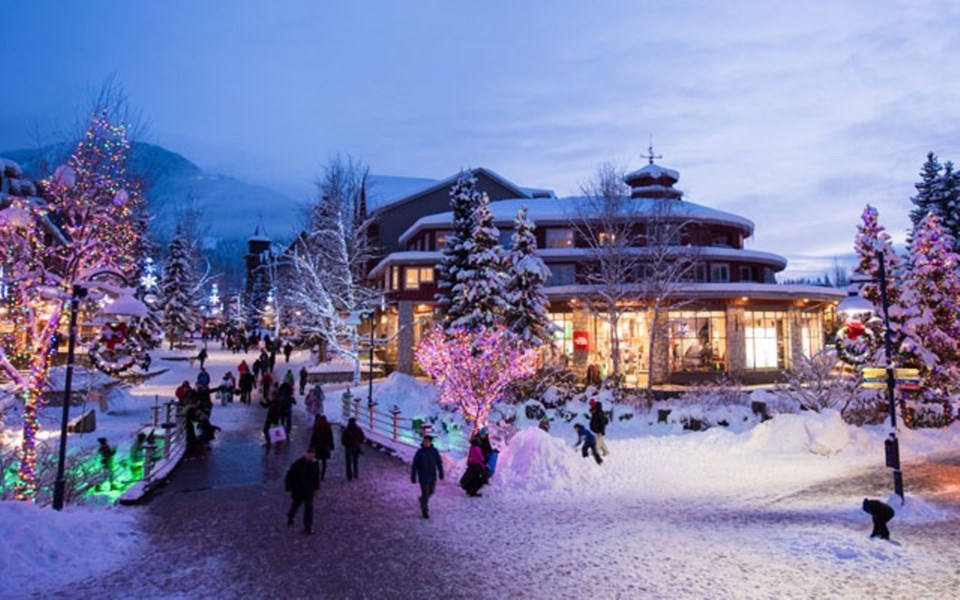Tourism Whistler (TW) is developing a sustainable tourism framework that will guide the destination marketing organization’s decision-making on booking events, conferences, and marketing of the resort.
While the principles of the framework are already considered by TW staff, CEO and president Barrett Fisher said the organization is working towards formally codifying them into its day-to-day operations.
It’s all part and parcel of TW’s—and the wider resort’s—effort to push Whistler towards becoming a more sustainable destination long-term, an issue that has seen renewed focus as visitation levels have surged emerging out of the COVID-19 pandemic, placing undue strain on the community’s natural assets and the overall resident and visitor experience.
“The tourism framework we’re creating is like a filter to help our team as we make decisions around events, around conferences, around marketing support, and other things,” Fisher explained. “So, really, if one event is competing for another event, or one conference is competing with another, it’s looking at a whole bunch of factors.”
That could include environmental considerations, such as an event or conference group’s effect on Whistler’s carbon footprint, its waste management strategy, and its contributions to Whistler’s climate action goals.
Playing into the environmental and economic considerations are the logistics of an event.
“Is it a longer length of stay? Is it coming in during need periods? Are they coming by bus and reducing traffic?,” Fisher said.
The new framework will also take into consideration social and cultural questions. Does the prospective event support and align with Truth and Reconciliation, diversity and equity? Does it add to our local culture and heritage?
“Is it supported by our local community? What are residents’ sentiments towards it? Those are the kinds of questions we are asking,” Fisher said.
There are also further economic determinants at play.
“Is it supporting jobs?” asked Fisher. “Is it a buoyant, vibrant addition to our tourism economy? is it aligned with our brand and values here?”
Fisher added that the decision-making framework is expected to be finalized by the end of the year, and that TW would be “pleased to share that with our Tourism Whistler members and community partners once we’ve confirmed it” to help guide their own decision-making.
The effort dovetails with one of the Resort Municipality of Whistler’s (RMOW) core priorities for the next four years—so-called “smart tourism”—that was recently unveiled in its overarching, four-year Strategic Plan.
Smart tourism being the least defined of the four core priorities (housing, climate action and community engagement round out the list), the RMOW intends to look to other global destination for ideas on effective visitor management. Education will be another key component of that strategy, with the goal of inspiring guests to be responsible stewards of Whistler’s natural environment and community, and to, ideally, motivate them to contribute to the resort’s climate action goals.
Before those initiatives are finalized, however, the municipality will undergo research to better understand what a smart tourism economy could look like in Whistler, as well as identifying any additional metrics the RMOW needs to consider.
For its part, TW has been undertaking major efforts to strike a better tourism balance since at least 2019, when it undertook a tourism visioning exercise, both internally and in the wider community, coming off the heels of surging visitation. The organization has for years offered packages promoting midweek or off-season stays, along with incentivizing longer stays in the resort, and Fisher said TW’s internal data has shown growth since the pandemic in the length of stay from the B.C. market, as well as a shift to more midweek visitation.
Along with being the resort’s main marketing arm, TW manages the Whistler Conference Centre and serves as the community’s convention and visitors bureau, assisting visiting regional, provincial, national and international groups with their meeting and incentive planning.




